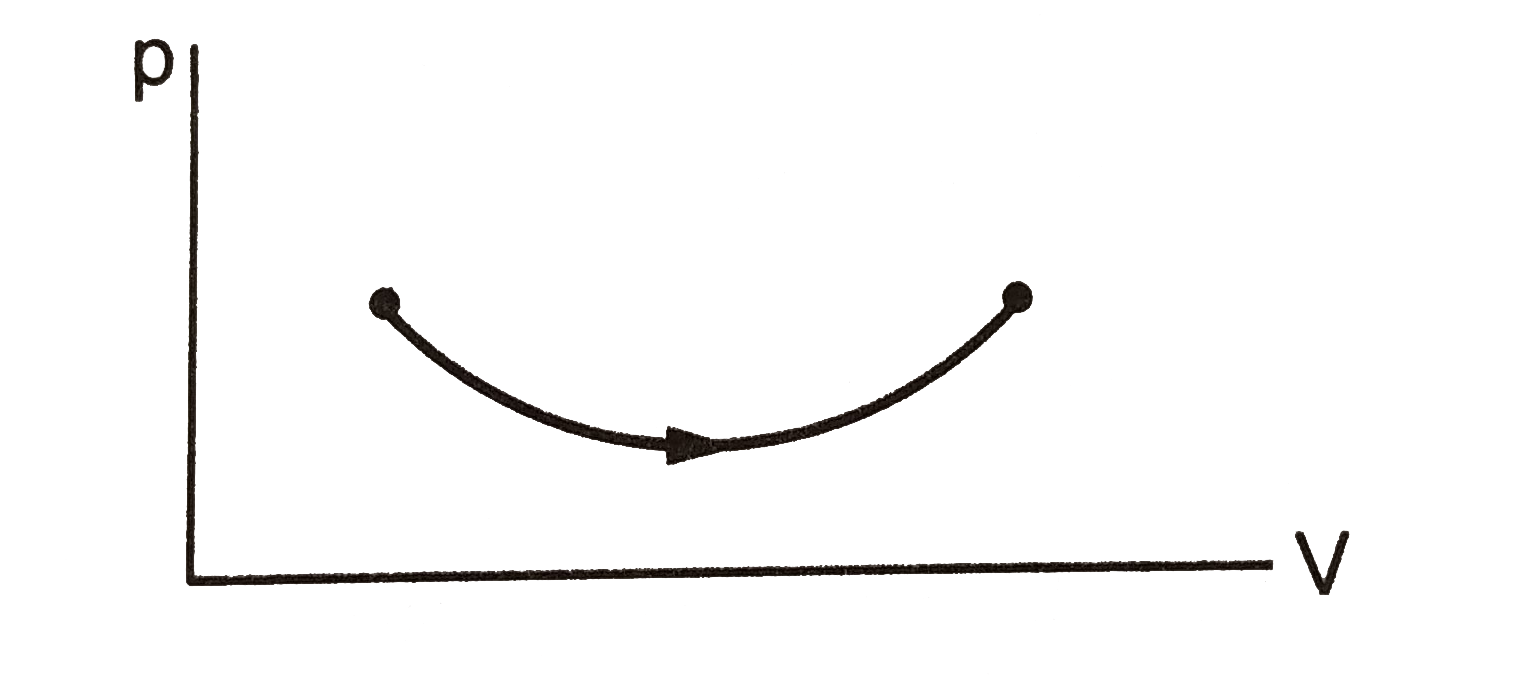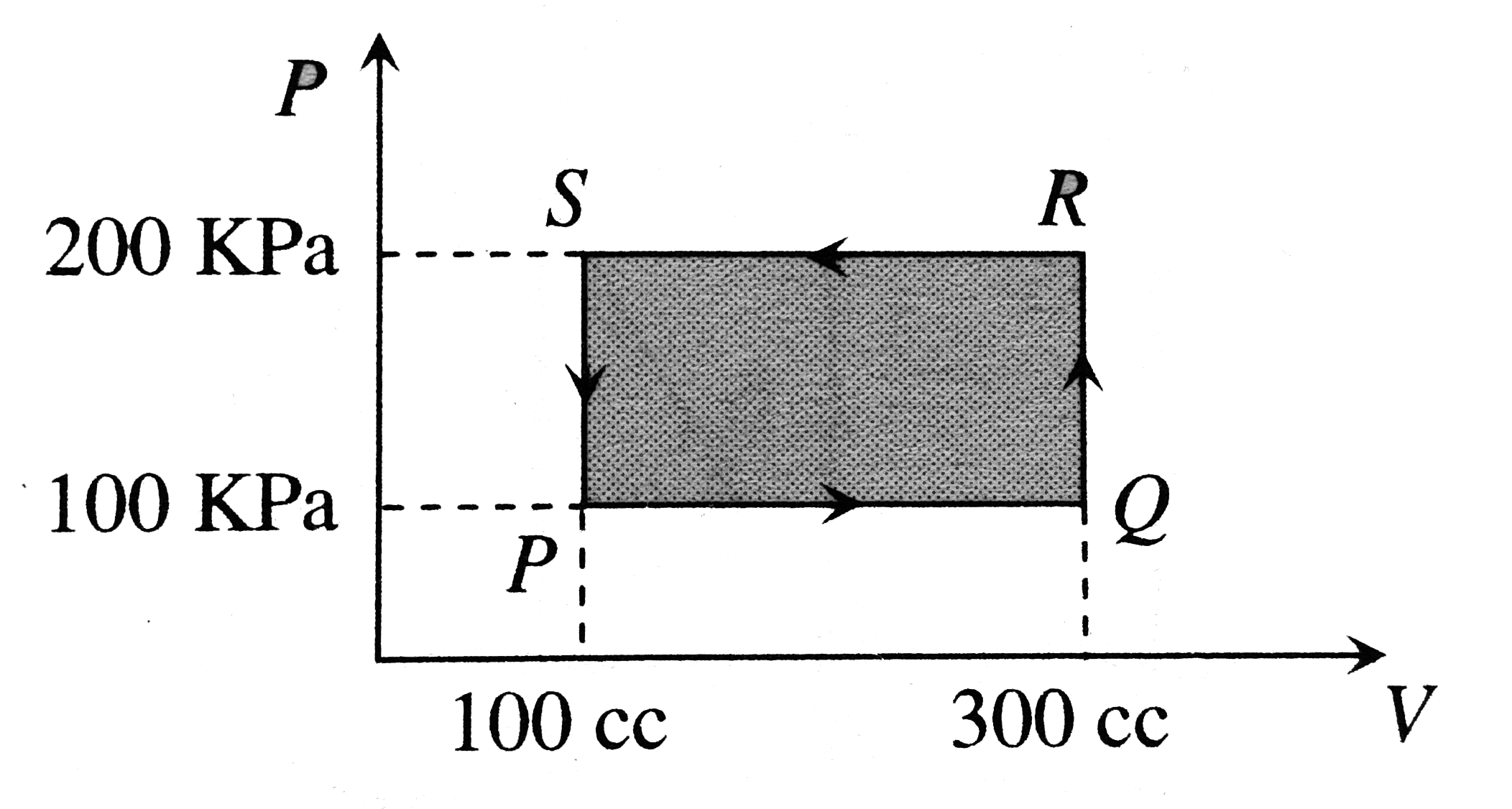The final volume of a system is equal to the initial volume in a certain process. Is the work done by the system necessarily zero? Is it necessarily nonzero?
To determine whether the work done by a system is necessarily zero or necessarily non-zero when the final volume is equal to the initial volume, we can analyze the situation using the fundamental concept of work in thermodynamics.
1. Understanding Work Done in Thermodynamics:
The work done W by a system during a process can be expressed mathematically as:
W=∫V2V1PdV
where P is the pressure and V1 and V2 are the initial and final volumes, respectively.
2. Given Condition:
The problem states that the final volume V2 is equal to the initial volume V1. Therefore, we can write:
V2=V1
This implies that the change in volume ΔV=V2−V1=0.
3. Case Analysis:
We will analyze two cases based on the behavior of pressure during the process:
- Case 1: Constant Pressure:
If the pressure P is constant, then the work done can be simplified:
W=P∫V2V1dV=P(V2−V1)=P⋅0=0
In this case, the work done is zero.
- Case 2: Variable Pressure:
If the pressure P is variable but the volume remains constant, we still have:
W=∫V2V1PdV
Since V1=V2, the integral evaluates to zero:
W=∫V1V1PdV=0
Thus, in this case, the work done is also zero.
4. Conclusion:
From both cases, we find that when the final volume is equal to the initial volume, the work done by the system is zero. Therefore, the answer to the question is:
- The work done by the system is necessarily zero.
The work done W by a system during a process can be expressed mathematically as:
W=∫V2V1PdV
where P is the pressure and V1 and V2 are the initial and final volumes, respectively.
The problem states that the final volume V2 is equal to the initial volume V1. Therefore, we can write:
V2=V1
This implies that the change in volume ΔV=V2−V1=0.
We will analyze two cases based on the behavior of pressure during the process:
If the pressure P is constant, then the work done can be simplified:
W=P∫V2V1dV=P(V2−V1)=P⋅0=0
In this case, the work done is zero.
If the pressure P is variable but the volume remains constant, we still have:
W=∫V2V1PdV
Since V1=V2, the integral evaluates to zero:
W=∫V1V1PdV=0
Thus, in this case, the work done is also zero.
From both cases, we find that when the final volume is equal to the initial volume, the work done by the system is zero. Therefore, the answer to the question is:
- The work done by the system is necessarily zero.
Topper's Solved these Questions
Similar Questions
In a cyclic process, work done by the system is
View Solutionif work is done by the system then W is
View SolutionStatement-1: Temperature of a system can be increased without supplying heat.
Statement-2: If the initial volume of system is equal to final volume in a process then work done is necessarily zero.
Statement-3: If an adiabatic curve for a gas intersect with an isothermal curve for the same gas then at the point of intersection, the ratio of slope of the adiabatic and the isothermal curve is γ.
View SolutionIf the total mechanical energy of a particle is zero is its linear momentum necessarily zero? Is it necessarily nonzero?
View SolutionConsider the process on a system as shown in the figure. During the process, the work done by the system

View SolutionA gas expands by a volume ΔV against a constant pressure P. What is the work done by the system?
View SolutionA thermodynamic system is taken through the cyclic PQRSP process. The net work done by the system is

View SolutionA thermodynamic system is taken through the cyclic PQRSP process. The net work done by the system is

View SolutionWhat happens to the internal energy of a system if work is done by the system?
View SolutionWhen the work is done by the system, w is taken as ......
View Solution
